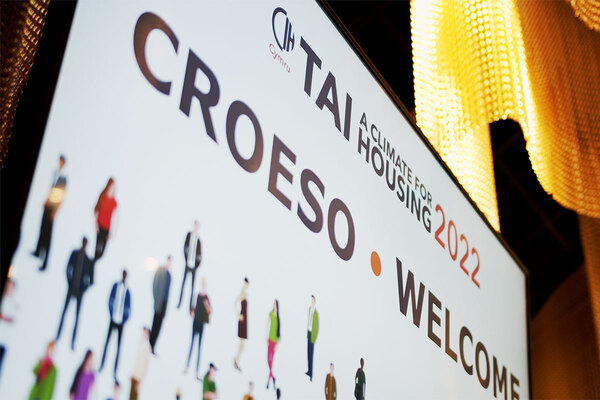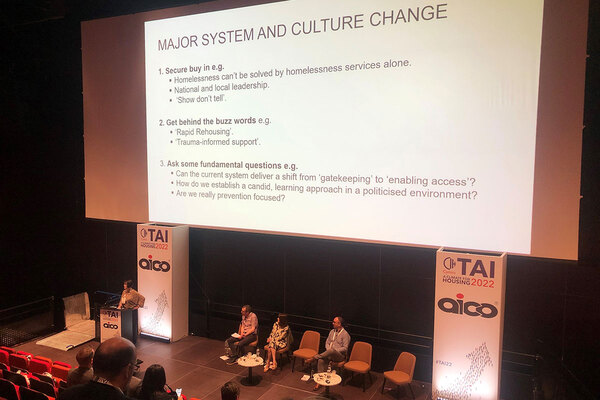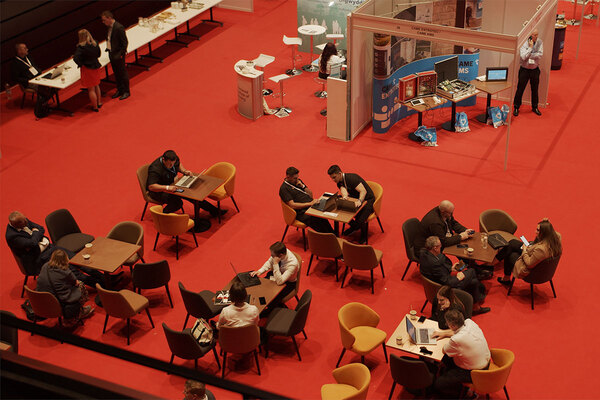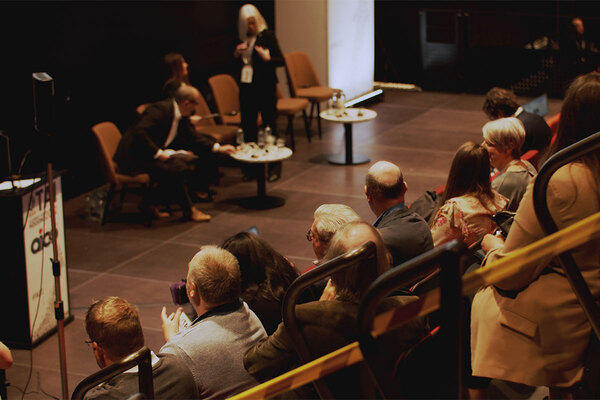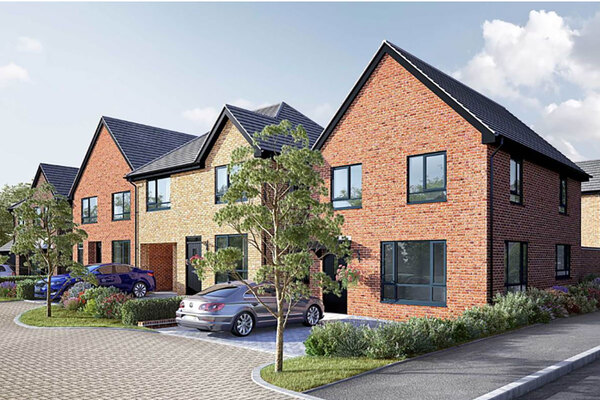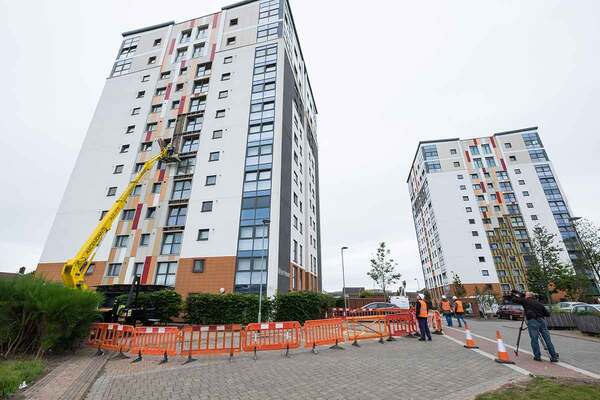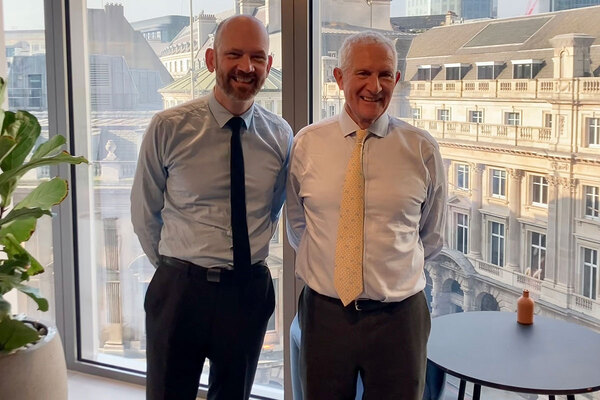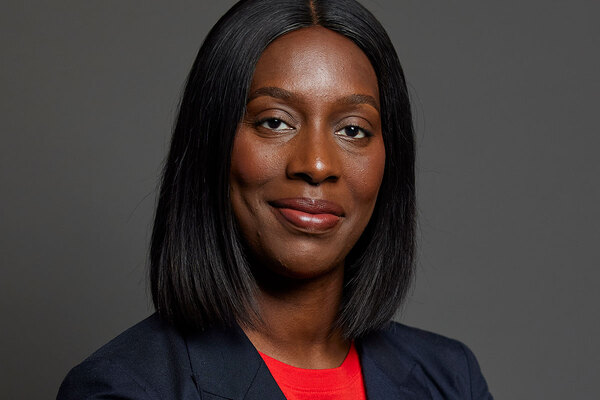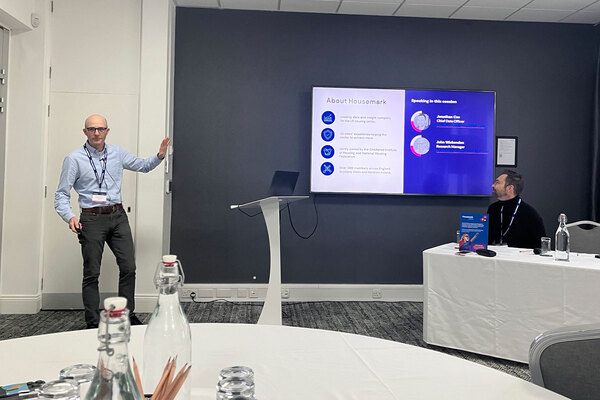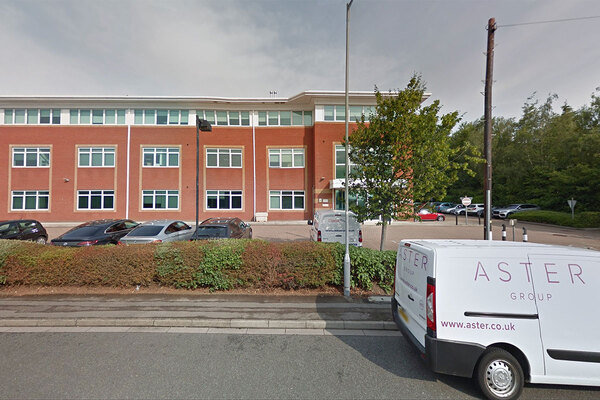You are viewing 1 of your 1 free articles
Tai housing conference 2022: dispatches from Swansea
Stephen Delahunty rounds up the talking points from Tai 2022, the Welsh social housing sector’s biggest annual conference.
For centuries, from the time the Vikings arrived between the 9th and 11th century, Swansea has attracted people from far afield.
Fast forward a thousand years and people once again flocked to the city in south Wales. However, this time it wasn’t Vikings or invaders looking for conquests and riches, it was housing professionals aiming to discuss the key issues facing the sector in 21st century Wales.
The Chartered Institute of Housing (CIH) Cymru’s annual conference, Tai, was back as an in-person event after a two-year COVID-enforced hiatus.
This year, the recently completed Swansea Arena was the venue for the Welsh housing sector to meet and share ideas. And some even had their own ideas on what the arena looks like, with one delegate telling Inside Housing that it reminded them of the inside of a Crunchie.
But between discussions about confectionary-shaped architecture, there was enough time to get to the heart of key housing issues.
From the decarbonisation of “one of the oldest housing stocks in Europe”, to problems with planning and development, to the levelling-up agenda, Inside Housing was on hand to find out what is really keeping Welsh social housing professionals up at night (apart from the hotel bar).
Below are some of the main themes and highlights from this year’s conference.
Climate change
The clue was in the name. ‘A climate for housing’ read the message under the Tai banner on the conference’s branding and literature. Fitting then that it was due to be opened by Julie James, the Welsh housing and climate change minister. Sadly, she could not make the event, due to a family bereavement.
Emma Williams, the Welsh government’s director of housing and regeneration, stood in with the ministerial address. She told delegates that Ms James passionately believes “in putting climate change at the heart of every decision that we as a sector make”.
Ms Williams reiterated earlier commitments to the establishment of a national construction company and funding for temporary accommodation, and told delegates that the challenges facing the sector provide Wales with an opportunity to lead the way on quality home standards and decarbonisation.
Matthew Dicks, national director at CIH Cymru, described her as the “Ole Gunnar Solskjaer” of the Welsh government.
Inside Housing understands it was not a reference to the ex-Norwegian striker’s managerial failings during his recent unsuccessful tenure as the boss of Manchester United, but a comparison with his earlier playing career, which was characterised by stand-out performances delivered on short notice.
Hundreds of delegates stayed in the main auditorium for Jagjit Chadha’s address on the economics of recovery. The director of the National Institute of Economic and Social Research delivered a gloomy presentation on the economy over the next 12 months, and called on the government to commit to planning and funding settlements many years in advance.
The lack of this sort of foresight is not just “a failing of this government, it’s one which we’ve seen time and time again in the British body politic”, he said.
Mr Chadha railed against policymakers for failing to make tough decisions in times of uncertainty, likening this indecision to Swansea’s Championship football club, which that evening had drawn 3-3 draw with Bournemouth after letting a three-goal lead slip, the second time this had happened in eight days.
There is no room for similar levels of complacency for the housing sector when it comes to tackling the climate emergency. Collaboration is key, and rivalries need to be put aside if the challenges facing the sector are to be overcome.
Partnerships and levelling up
One area where Neil Barber, executive director of commercial at Pobl, suggested collaboration could happen was between associations and local authorities. During a discussion on the evolution of funding, he told delegates about the need for associations to get serious about putting resources towards helping councils with their work.
The need to retrofit “one of the oldest housing stocks in Europe” was another of the sector’s biggest challenges, said Catherine May, Tyfu Tai Cymru manager. “There is a need to connect housing and planning with the green recovery.”
Robin Staines, who leads the Welsh government’s Council House Building at Pace and Scale Project, said the initiative was there to support landlords to deliver their house-building goals and as part of the government’s timber industrial strategy, which would help build quality, less carbon-intensive homes.
“It’s not just about the home, it is how it leads to the circular and foundational economy,” he told delegates.
One area of the conference that could have worked less in partnership with the schedule was the plumbing above one of the break-out rooms. In a session on how the UK government’s ‘levelling up’ agenda would address inequality in Wales, a toilet could be heard flushing almost every time the programme was mentioned.
But it did not put panellists off. Auriol Miller, director of the Institute of Welsh Affairs, said it was fortunate that the sector is recognised as a strategic partner to deliver net zero, but that “it is going to take a wartime effort when it comes to combating climate change”.
However, one delegate told Inside Housing after the session that to say they were sceptical of the UK government’s commitment to levelling up would be putting it mildly.
Politics and prevention
While building homes and retrofitting the ones that already exist dominated conversations, there was also talk of how to ensure those that didn’t have homes could be housed.
Ruth Power, chief executive of Shelter Cymru, told delegates that more work needed to be done on preventing repeated homelessness. She said that there were still serious questions to be asked about the Welsh government’s homelessness action plan.
“We need to remember that rapid rehousing is a sign that prevention has failed. So actually, it’s already pointing to a problem.
“And, for many people, there is a risk that rapid rehousing could be the starting line for a rapid cycle into repeated homelessness.”
The conference drew to a close with Mr Dicks interviewing Iain Dale, the LBC presenter and author, about how and why politics appears to be so polarised across the UK at the moment. An entertaining talk ensued, which covered Brexit, prime minister Boris Johnson’s competency, and MPs watching porn on their phones in the House of Commons.
Mr Dale was advocating for people to “shout less” and suggested that developers, councils, landlords and environmentalists should listen to each other’s arguments when it comes to opposing and supporting development plans.
Mr Dicks said that maybe the sector, and politics in general, would do well to engage in the type of good-natured spirit shown by MPs in cross-party TV bake-offs.
